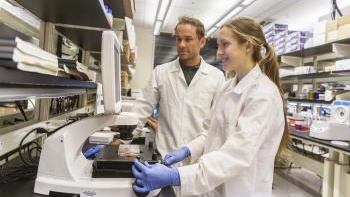
ASU-UNAM Binational Laboratory on Climate Change Vulnerability, Adaptation and Sustainability
Jointly managed and supported through seed funds from a collaborative agreement between the Presidents of both universities, the Binational Lab will be specialized on conducting capacity building to advance state-of-the art sustainability assessment and management with a regional scope. Activities will be centered on the US, Mexico, Central-America and the Caribbean, given the seriousness of sustainability challenges in the region and the large asymmetries in available capacities to advance sustainable development initiatives.
The Binational Lab aims to (1) produce a new generation of sustainability indicators to measure progress in the implementation of sustainability policy from local to the regional scale; (2) maintain databases of high quality data and generate computational toolkits to ensure that information is readily available for decision-making; (3) generate procedures for streamlining sustainable assessment and development; and (4) build up technical and institutional capacities in sustainability assessment tools and technologies through training and certification of individuals, agencies and organizations.
The iniciative leaders have worked on the following:
- Organized and held an international workshop at ASU. This workshop was partially funded by a competitive grant to Dr. Bojórquez-Tapia (UNAM) from the Instituto Panamericano de Geografía e Historia, an initiative of the Organization of American States. The organizers invited participants from Costa Rica, Guatemala, Brazil, as well as Mérida and La Paz, México. The workshop focused on the motivation and potential impact of the Binational Lab activities in the Central American region, and discussions about the business plan and proposed design of the non-profit to regional collaborators, as well as mechanisms for participation of regional collaborators as members of the non-profit in support of product (software) dissemination, training and program implementation. The event organizers confirmed the interest in regional collaborators to undertake needs assessment through the implementation of the online survey of training needs and software use and demand in Guatemala and Costa Rica.
- Discussed with researchers in complex adaptive system science at Tecnologico de Monterrey, to collaborate in the research that would lead to improved vulnerability planning for the region. A workshop with Tecnologico and with researchers with the Rand Corporation, also affiliated with ASU, is planned to discuss the research necessary to develop state of art assessment on vulnerability in the region.
- Design of Binational Laboratory as an independent non-profit to support software development, licensing and professional training of public sector and civil society representatives in Mexico and Caribbean.
- Development of business plan and organizational structure to coordinate development and licensing of software on behalf of UNAM and ASU.
- Development of prototype software and web-platform (for Ecological Ordinance and Environmental Impact Assessment).
ASU Program Owner(s)
Associate Professor, School of Sustainability
Mexican Program Partner(s)